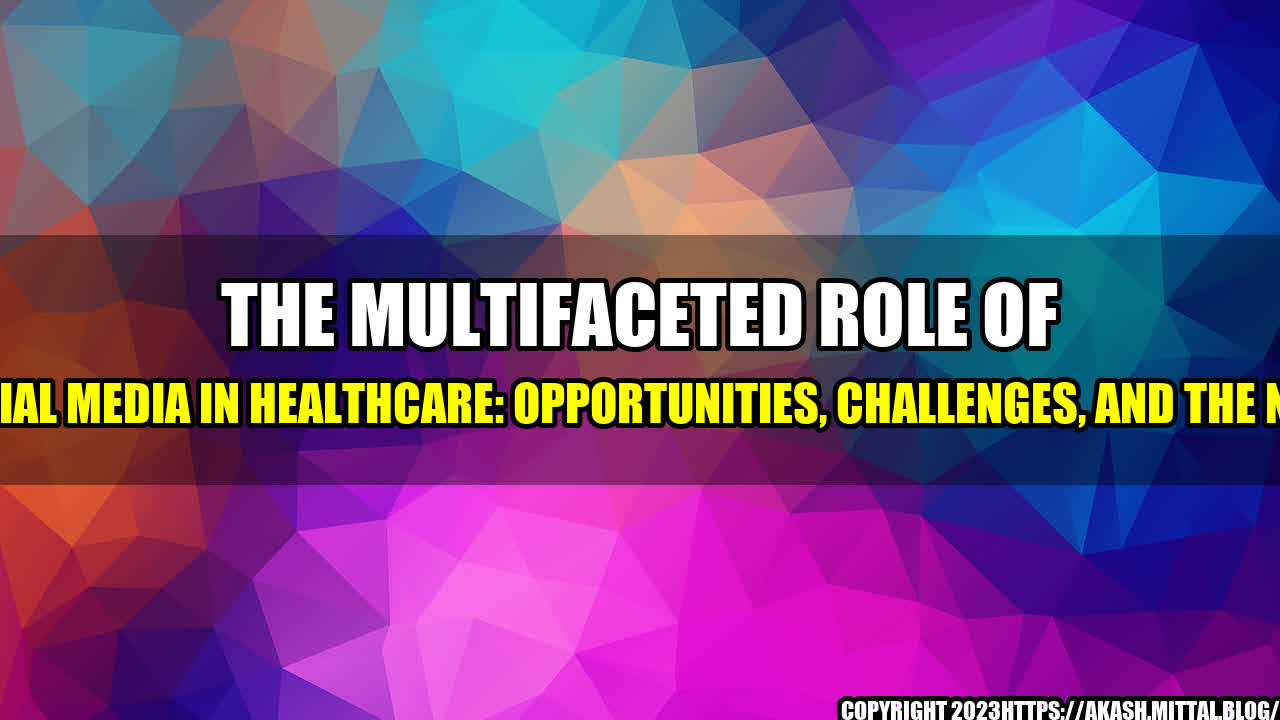Meet Jane, a mother of two who had been feeling unwell for a few days. She was experiencing symptoms such as coughing, fever, and body aches, but she wasn't sure if it was just a cold or something more serious. She was hesitant to visit the doctor's office due to fear of contracting COVID-19. Instead, she decided to turn to social media and posted a message on her Facebook page, asking if anyone had experienced similar symptoms lately.
To her surprise, she received many responses from her friends, some of whom recommended that she consult a doctor immediately. A few even shared information about telemedicine services that can provide remote consultations with physicians. With the help of social media, Jane was able to get a diagnosis and treatment without leaving her home.
The use of social media in healthcare has been rapidly growing in recent years. According to a survey conducted by the Pew Research Center, 45% of U.S. adults have used social media to connect with a healthcare provider. Additionally, 60% of doctors believe that social media improves the quality of care delivered to patients.
- Access to health information: Social media platforms provide users with easy access to health information and resources. For example, Facebook has partnered with several healthcare organizations, such as the American Cancer Society and the National Heart, Lung, and Blood Institute, to provide users with accurate and reliable information about health topics.
- Patient engagement: Social media can be used to engage patients and promote healthy behaviors. For instance, a study published in the Journal of Medical Internet Research found that a Facebook group intervention was effective in improving physical activity among overweight and obese women.
- Telemedicine: Social media has enabled the rise of telemedicine services, which allow patients to consult with healthcare providers remotely. This is especially useful during the COVID-19 pandemic, as it reduces the risk of exposure to the virus.
An
The use of social media in healthcare is still a relatively new concept, but it is rapidly gaining momentum. Here are some advantages and challenges of integrating social media into the healthcare system.
and Case Studies
One example of how social media can be used in healthcare is through patient support groups. These groups allow patients with similar health conditions to connect with each other and share their experiences and tips for managing their condition. For instance, a study published in the Journal of Medical Internet Research found that a Facebook-based support group for people with type 2 diabetes resulted in improved glycemic control and self-care.
Another example is the use of social media by healthcare providers to connect with their patients and provide personalized care. For example, a dermatologist may use Instagram to post educational content about skin health and offer virtual consultations to patients.
Conclusion
Social media has enormous potential to transform healthcare by improving access to information, promoting patient engagement, and enabling remote consultations. However, it also poses several challenges, such as privacy and security concerns, and the need for proper regulation and guidelines. To fully leverage the benefits of social media in healthcare, it is essential to strike a balance between its advantages and challenges.
- Healthcare providers should use social media platforms to engage with patients and provide educational content.
- Patients should use social media to access reliable health information and connect with support groups.
- Policymakers should establish guidelines and regulations to ensure the safe and ethical use of social media in healthcare.

Curated by Team Akash.Mittal.Blog
Share on Twitter Share on LinkedIn